12 start with P start with P

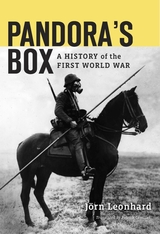
Winner of the Norman B. Tomlinson, Jr. Prize
“The best large-scale synthesis in any language of what we currently know and understand about this multidimensional, cataclysmic conflict.”
—Richard J. Evans, Times Literary Supplement
In this monumental history of the First World War, Germany’s leading historian of the period offers a dramatic account of its origins, course, and consequences. Jörn Leonhard treats the clash of arms with a sure feel for grand strategy. He captures the slow attrition, the race for ever more destructive technologies, and the grim experiences of frontline soldiers. But the war was more than a military conflict and he also gives us the perspectives of leaders, intellectuals, artists, and ordinary men and women around the world as they grappled with the urgency of the moment and the rise of unprecedented political and social pressures. With an unrivaled combination of depth and global reach, Pandora’s Box reveals how profoundly the war shaped the world to come.
“[An] epic and magnificent work—unquestionably, for me, the best single-volume history of the war I have ever read…It is the most formidable attempt to make the war to end all wars comprehensible as a whole.”
—Simon Heffer, The Spectator
“[A] great book on the Great War…Leonhard succeeds in being comprehensive without falling prey to the temptation of being encyclopedic. He writes fluently and judiciously.”
—Adam Tooze, Die Zeit
“Extremely readable, lucidly structured, focused, and dynamic…Leonhard’s analysis is enlivened by a sharp eye for concrete situations and an ear for the voices that best convey the meaning of change for the people and societies undergoing it.”
—Christopher Clark, author of The Sleepwalkers
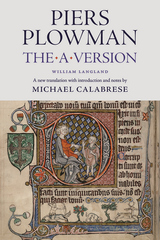
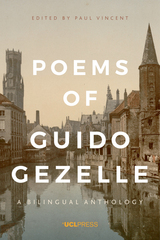

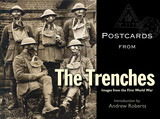
The cards in this compelling volume were created not only by soldiers, but also by embedded journalists from France, Belgium, Austria, Germany, and Britain. The images capture scenes both humorous and poignant, including soldiers having a mock party with little food to eat, wounded soldiers smiling for the camera, a makeshift trench hospital, the bloody aftermath of a battle, and a huddle of men taking what they know could be their last communion before marching onto the battlefield. Other cards document the mundane duties that dominated wartime life, including men digging trenches, troops marching to new trenches and battlefields, and or soldiers nearly comatose with boredom while waiting for the fight to begin. This stunning visual narrative opens a new window into one of the most analyzed events in history, as the postcards’ images testify to the resilience and bravery of soldiers in the most trying circumstances.
A fascinating and unprecedented historical document, Postcards from the Trenches draws back the curtain to unflinchingly show the daily horror and humanity that define life in war.

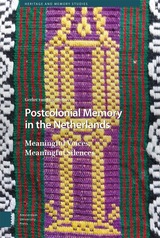
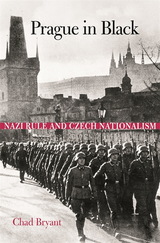
In September 1938, the Munich Agreement delivered the Sudetenland to Germany. Six months later, Hitler’s troops marched unopposed into Prague and established the Protectorate of Bohemia and Moravia—the first non-German territory to be occupied by Nazi Germany. Although Czechs outnumbered Germans thirty to one, Nazi leaders were determined to make the region entirely German.
Chad Bryant explores the origins and implementation of these plans as part of a wider history of Nazi rule and its consequences for the region. To make the Protectorate German, half the Czech population (and all Jews) would be expelled or killed, with the other half assimilated into a German national community with the correct racial and cultural composition. With the arrival of Reinhard Heydrich, Germanization measures accelerated. People faced mounting pressure from all sides. The Nazis required their subjects to act (and speak) German, while Czech patriots, and exiled leaders, pressed their countrymen to act as “good Czechs.”
By destroying democratic institutions, harnessing the economy, redefining citizenship, murdering the Jews, and creating a climate of terror, the Nazi occupation set the stage for the postwar expulsion of Czechoslovakia’s three million Germans and for the Communists’ rise to power in 1948. The region, Bryant shows, became entirely Czech, but not before Nazi rulers and their postwar successors had changed forever what it meant to be Czech, or German.
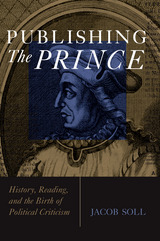
As new ideas arose during the Enlightenment, many political thinkers published their own versions of popular early modern "absolutist" texts and transformed them into manuals of political resistance. As a result, these works never achieved a fixed and stable edition. Publishing The Prince illustrates how Abraham-Nicolas Amelot de La Houssaye created the most popular late seventeenth- and eighteenth-century version of Machiavelli's masterpiece. In the process of translating, Amelot also transformed the work, altering its form and meaning, and his ideas spread through later editions.
Revising the orthodox schema of the public sphere in which political authority shifted away from the crown with the rise of bourgeois civil society in the eighteenth century, Soll uses the example of Amelot to show for the first time how the public sphere in fact grew out of the learned and even royal libraries of erudite scholars and the bookshops of subversive, not-so-polite publicists of the republic of letters.
Jacob Soll is Associate Professor of History at Rutgers University.
Cover art courtesy of Annenberg Rare Book Room and Manuscript Library, University of Pennsylvania
Jacket Design: Stephanie Milanowski
"Jacob Soll traces the origins of Enlightenment criticism to the practices of learned humanists and hard-pressed literary entrepreneurs. This learned and lively book is also a tour de force of historical research and interpretation."
---Anthony Grafton, author of Cardano's Cosmos and Bring Out Your Dead
"Brilliant. How the printed page changed political philosophy into investigative reporting, and reason of state into the unmasking of power."
---J. G. A. Pocock, author of The Machiavellian Moment
"Soll's path-breaking study is a 'must read' for all those interested in the history of political thought and early modern intellectual history."
---Barbara Shapiro, University of California Berkeley
"Soll has done [Amelot] and his context justice, writing as he does with a clear, singular, and welcome voice."
---Margaret C. Jacobs, American Historical Review
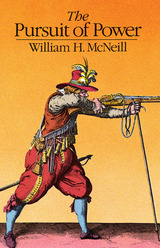
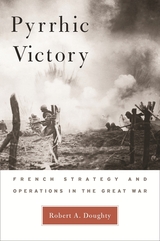
As the driving force behind the Allied effort in World War I, France willingly shouldered the heaviest burden. In this masterful book, Robert Doughty explains how and why France assumed this role and offers new insights into French strategy and operational methods.
French leaders, favoring a multi-front strategy, believed the Allies could maintain pressure on several fronts around the periphery of the German, Austrian, and Ottoman empires and eventually break the enemy's defenses. But France did not have sufficient resources to push the Germans back from the Western Front and attack elsewhere. The offensives they launched proved costly, and their tactical and operational methods ranged from remarkably effective to disastrously ineffective.
Using extensive archival research, Doughty explains why France pursued a multi-front strategy and why it launched numerous operations as part of that strategy. He also casts new light on France's efforts to develop successful weapons and methods and the attempts to use them in operations.
An unparalleled work in French or English literature on the war, Pyrrhic Victory is destined to become the standard account of the French army in the Great War.
READERS
Browse our collection.
PUBLISHERS
See BiblioVault's publisher services.
STUDENT SERVICES
Files for college accessibility offices.
UChicago Accessibility Resources
home | accessibility | search | about | contact us
BiblioVault ® 2001 - 2024
The University of Chicago Press









